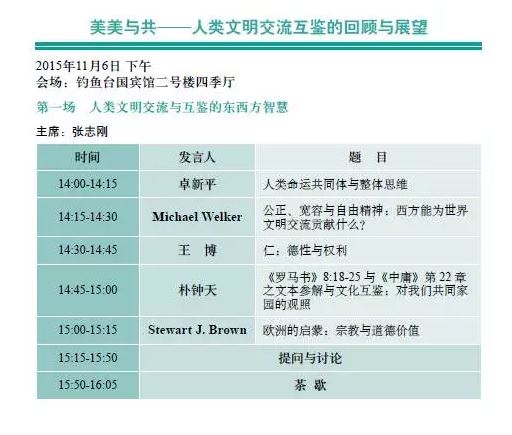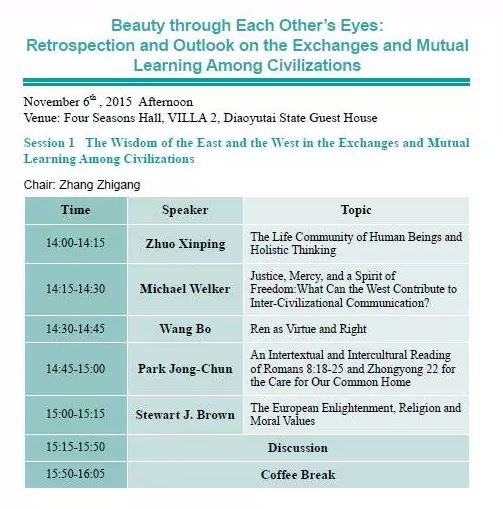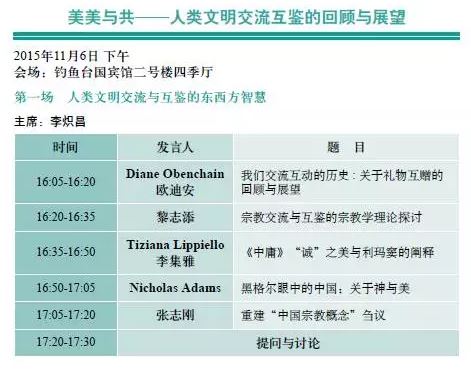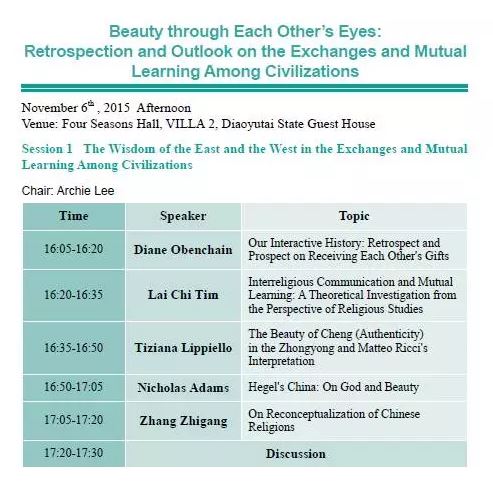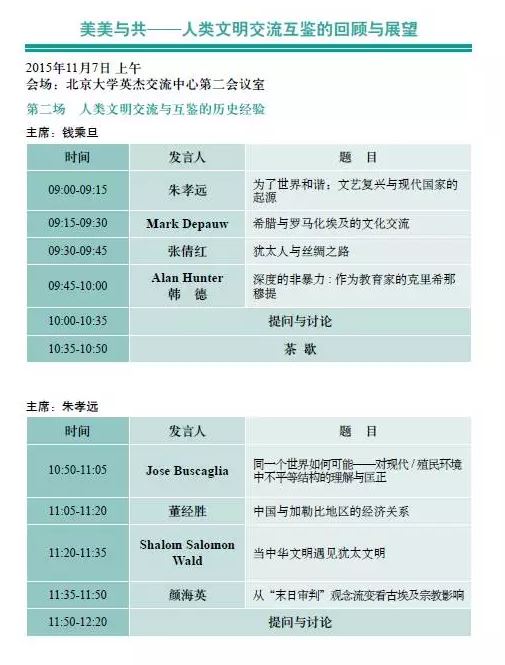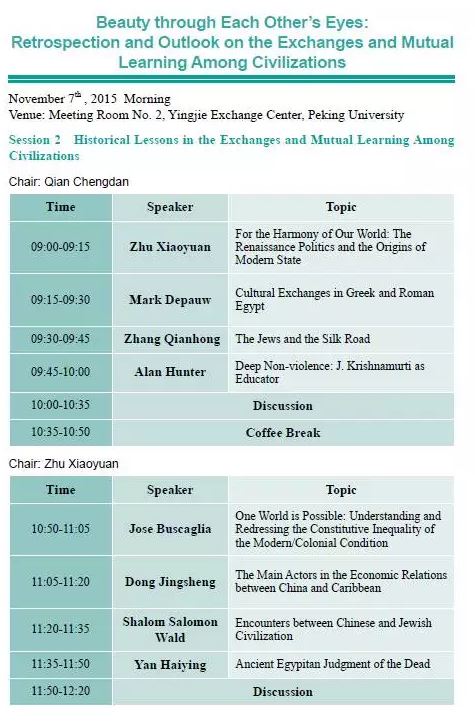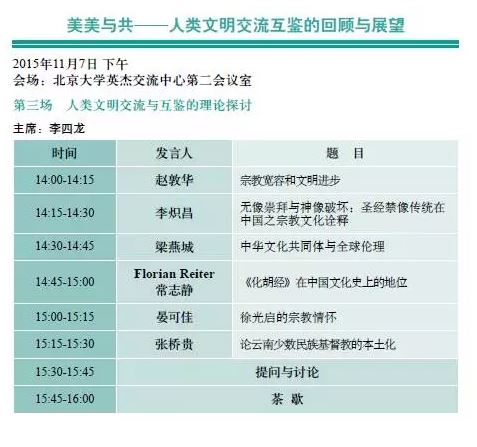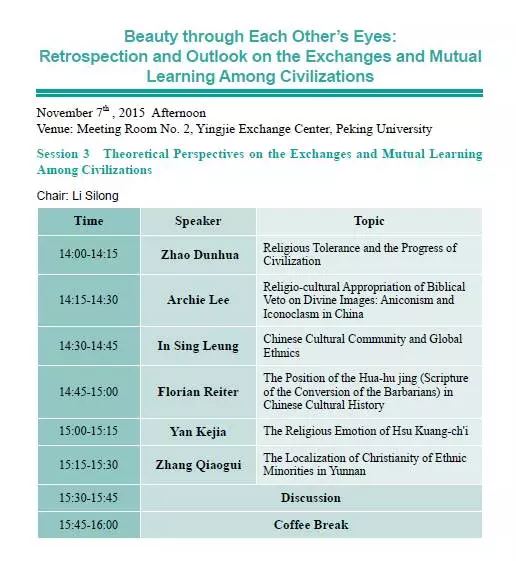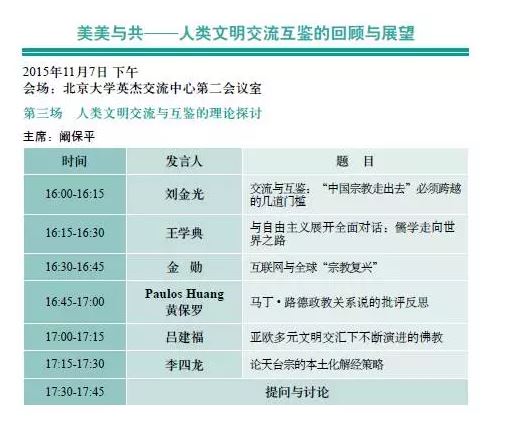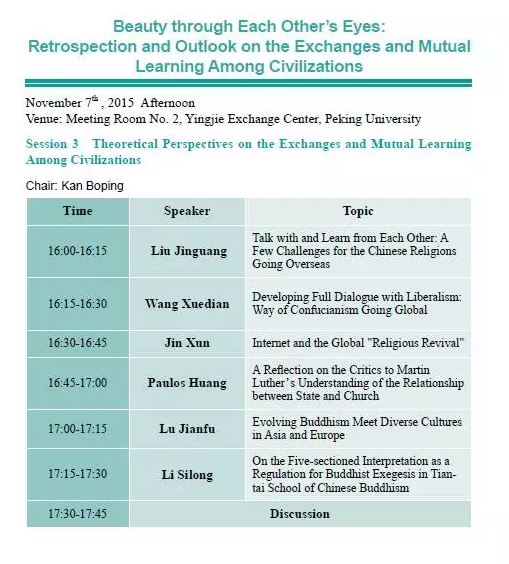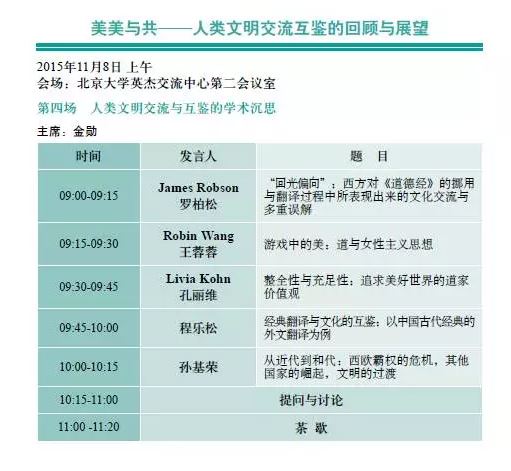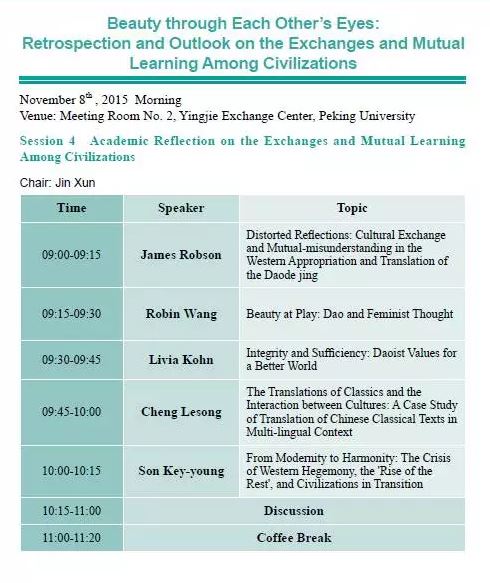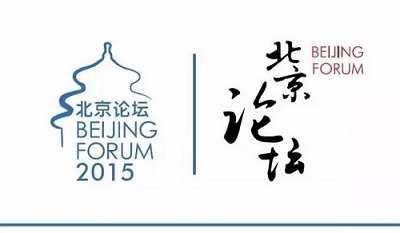

本分論壇的主題,取意於著名人類學家費孝通(1910-2005)的名言:“各美其美🧒,美人之美,美美與共,天下大同🔵。”這裏的“美”,意指人類不同的文明傳統所具有的那些優秀的文化基因和文明成果,諸如理想🔘、精神💖、智慧、價值、貢獻🧏🏽♂️、經驗等🧏🏻♀️。中華文明素有“和而不同🧖♀️、兼容並包、海納百川👏🏽、有容乃大”的傳統🦩。在悠久的中華文明史上,記載著大量中外文化交流與互鑒的往事🦶🏼,如始於西漢的“絲綢之路”,唐朝“玄奘西行求法🏊🍪,鑒真東渡送經”,明末“西學東漸與東學西漸”等。
中國社會改革開放以來👩🏿⚕️🐊,既紮根中華文明大地,堅持自己的發展道路,又走向世界,在經濟、政治和文化等領域廣泛開展交流、合作、互鑒與互惠,則再次印證了“美美與共”的深邃哲理。誠如著名哲學家羅素(BertrandRussell, 1872-1970)所言:歷史已多次證明🦹🏽♂️,不同文明的交流是人類文明發展的裏程碑,希臘學習埃及✋🏽💁🏻♂️、羅馬借鑒希臘🍔、阿拉伯參照羅馬,歐洲又模仿阿拉伯等,皆是如此🏊🏿♂️。歷史經驗讓意昂2相信💨,全球化時代的到來,更亟需促進不同文明的交流與互鑒🧕,因為只有這樣🍝,才能讓不同的民族、社會和國家相互了解🙅♀️👨🔬、相互尊重✋、相互欣賞,並通過分享各自的文明成果與生存智慧,共同擔當維護世界和平、繁榮人類文明的重任。
正是本著上述學術立意,本分論壇將誠邀海內外著名專家學者𓀔,圍繞三方面題目來展開深度研討:(一)不同文明交流與互鑒的歷史經驗🌐,這部分研討將註重紮實的史料與範例研究🧑🏿⚕️,同時歡迎較為宏觀的歷史回顧♔🤨;(二)不同文明交流與互鑒的理論探討,這部分研討將著重哲學、宗教學、人類學和社會學等視角,更歡迎跨學科的理論探索;(三)全球化時代的文明傳統對話🧘🏼,這部分研討將主要圍繞不同文明背景下的哲學與宗教文化傳統展開,或致力闡釋某哲學🧏🏽🎏、宗教文化傳統的基本精神、理想境界💁🏼♀️、理論貢獻等🥬,或致力不同的哲學🥾、宗教文化傳統的比較與對話🧚🏽。
This panel's theme draws its inspiration from the well-known exhortation of the eminent Chinese anthropologist, the late Fei Xiaotong (1910-2005): "One cherishes one's own Beauty but also cherishes the Other's Beauty. It is this mutual appreciation that may lead to universal harmony".In this context Beauty refers to the loftiest qualities and achievements in both the material and non-material spheres (e.g. ideals, ethos, values, experience, wisdom) that a represent in all cultures and civilizations.
Chinese tradition has long valued harmony and inclusiveness; often invoking the image of a vast ocean into which run hundreds of rivers. Chinese history's shows many examples of cultural exchanges and cross-cultural acquisition of knowledge. It has been profoundly impacted by the Silk Road (as early as the Han dynasty, 206BC-220 AD), by Chinese Buddhist monks’travels in Asia during the Tang dynasty(618-907), e.g. Xuanzang's pilgrimage to India to search for sacred Buddhist scriptures, or Jianzhen's missionary journey to Japan, and by the transmission of Western knowledge to China, and of Chinese knowledge to the West during the Ming dynasty (1368-1644).
The launching of the Open-door Policy in the late 70s renewed with this specific road map for national and cultural development. Since then, China has been continually engaged with the world in the economic, political and cultural fields in areas that include communication, co-operation, and cultural exchanges, thus attesting to its deep regard for the wisdom expressed by the"Beauty through Each Other's Eyes".
As the famous British philosopher Bertrand Russell (1872-1970) pointed out, are view of history shows that encounters between civilizations often create the landmark events that mark human progress. For instance, the Greeks learned from the Egyptians, the Romans from the Greeks, the Arabs from the Romans, medieval Europeans from the Arabs. It is in the light of this historical background that we are convinced that our new age of globalization is in urgent need of cross-cultural acquisition of knowledge, and inter civilizational communication. This is the only way through which different peoples, societies and countries may come to understand, respect and appreciate each other; the only way through which, by sharing their life experience and cultural achievements, nations may fulfill their mission of safe guarding world peace,and spur human civilization's continued progress.
To accomplish this goal, the panel invites experts and scholars from China and the world to present and discuss the following thematic areas: (1) case-studies or macro level overviews of historical exchanges between civilizations and of cross-cultural acquisition of knowledge; (2) theoretical investigation of civilizational exchanges and cross-cultural acquisition of knowledge, from aphilosophical, theological, anthropological, sociological standpoint-preferably with an inter-disciplinary approach; (3) inter-civilizational dialogue in the global age, with an emphasis on the philosophical, cultural and religious traditions of major civilizations, examined individually (e.g. ethos, ideals,theoretical contributions), or in the form of comparison or dialogue.

